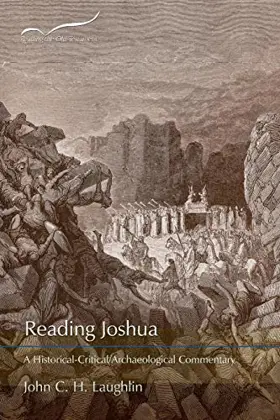

Reading Joshua: A Historical-Critical/Archaeological Commentary
Pages
274
Publisher
Smyth & Helwys
Published
5/3/2016
ISBN-13
978-1-57312-836-0
Reading Joshua was written for anyone who wishes to engage critically one of the most, if not the most, problematic and troublesome books in the Bible. Using the best of current historical-critical studies by mainstream biblical scholars, and the most recent archaeological discoveries and theorizing, Laughlin questions both the historicity of the stories presented in the book as well as the basic theological ideology presented through these stories: namely that Yahweh ordered the indiscriminate butchery of the Canaanites. This ideology is criticized for what it is: a xenophobic and genocidal approach to the issue of how human beings should act toward one another in a multi-cultural world. Read against the backdrop of the Babylonian Exile (sixth century BCE), these stories may have served well the purpose(s) of their author(s). Thus these troubling accounts may have had their time and place, but that time and place is not the twenty-first-century world in which we now find ourselves.
Reviews
I have read a handfull of commentaries on Joshua. I have wanted to dive into it deeply because the content of the book is very disturbing to be. How should I read this book in the context of being a modern Christian?
This commentary gave me the most peace of mind.
John C. H. Laughlin does not believe Joshua to be a running historically accurate account of Israel's conquest of Canaan. It is, rather, an idealized history from the perspective of the compilers of the book for a completely different time and setting. It is not clear what period the book is influenced by but it is fairly certain what period the compilation of the book is NOT. It was not composed in any period befor the Babylonian exile.
In very brief summary, If it was written in the exile, the authors were reflecting back and thinking about how wonderful it would have been if the early Israelite settlers had wiped out the Canaanites so the Israelites would not have dabbled in Canaanite religion which they blame for the exile. If the book of Joshua was written in the Persian period, then the authors were championing the doctrine that only pure Jews could be considered a pert of the community called God's People. Any children born to mixed race parents were automatically outside the community/assembly.
The commentary spends most of its space showing that almost every account described in Joshua could not possibly have happened as describedd and most likely never happened at all. That's really good news for those of us who are disturbed by Joshua's content.
If you study Joshua with this commentary, I recommend that you supplement your study with a commentary that suggests practical applications in the reading. I recommend J. Gordon Harris' commentary in the '"Understanding the Old Testament"' series.
